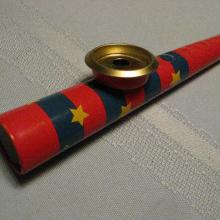Christmastide
I’M NOT SURE where I thought we would be by now, but I didn’t think we’d be here. A global pandemic has ravaged and killed too many of our loved ones to name, though we could have contained it through collective measures. Climate change continues unabated despite decades of warning and appeal, and we may have missed our window to prevent its worst impacts. We’re experiencing perils that are unnecessary and completely caused by our selective will.
Christmastide and the Epiphany season are opportunities for us to recall and perhaps draw hope from the story of God’s inbreaking into a desperate human condition. But we must also remember that, despite God’s extraordinary proximity to humanity in those days, trouble persisted. Jews were still under a repressive occupying power. They were worshipping in a temple built by a leader invested in his own oppression, put in power by their oppressor. Very little seemed to change. If anything, it appeared to get worse.
As with the people in those times, so it is with us today. We who read the text get a peek behind the veil of worldly power to see what God was doing in the shadows. We see what was obscured from those who cried to their Creator or who’d perhaps run out of tears to shed. We see what they could not see at the time. The preacher and teacher will need to pull back anew this curtain for the people—and for self.
Growing up in Texas, fairly close to New Orleans, I knew all about Mardi Gras. It was a big deal in the South, replete with combinations of debaucherous consumption and self-exposure. What I didn’t understand, being the good evangelical Protestant that I was at the time, was that it actually was the celebration preceding the liturgical period of Lent.
It was only once I framed the excesses of Mardi Gras with the self-discipline and austerity of Lent that it began to make much sense. Not that the gratuitous self-abuse was then justified, but at least it made more sense, given the things everyone was supposed to give up during the weeks to come.
This got me thinking about how we approach New Year’s Eve, and framing it, too, by what we expect and anticipate from New Year’s Day. Yes, the celebrations of New Year’s Eve are, in some ways, just an excuse to indulge ourselves in excessive partying, but they also stand in contrast against the hopes we hold for the following day.
Now that Dec. 25 is over, the real war on Christmas can begin.
Because, you see, that other “War on Christmas” that begins in late November and ends on Dec. 25 is a manufactured war. That war is fabricated by a television network that, despite the Bible’s repeated message at the birth of Christ to “not be afraid,” wants Christians to live in fear of some secular agenda to destroy Christmas. After all, there’s nothing like fear and a manufactured war to raise television ratings.
That’s a manufactured war because, as Diana Butler Bass has brilliantly pointed out, the season from late November to Dec. 24 isn’t Christmas. It’s Advent. If anyone were waging a war on a Christian season during the early part of December, it wouldn’t be on Christmas. It would be on Advent.
The real war on Christmas begins on Dec. 26, but no major television network will tell you about it. The real Christmas season, known as Christmastide, begins on the evening of Dec. 24 and lasts 12 days, ending on Jan. 5.

Kazoo. Via Wylio http://www.wylio.com/credits/Flickr/3142599975
Each day leading until Christmas we will post a different video rendition of the "Hallelujah Chorus" for your holiday enjoyment and edification.
Today's installment comes from a YouTube user named JazzMary and her friends, who, apparently, have an annual gathering for kazoo lessons and carols.
So we give you, Kazoolalulia!
Watch it on the blog...
The German Baroque master composer George Frideric Handel wrote his most famous piece, the English oratorio Messiah, in 1741 and it was performed for the first time publicly on April 13, 1742 in Dublin, Ireland. In the intervening nearly 300 years since its composition, Handel's Messiah — and it's "Hallelujah Chorus" in particular — have become staples of Christmastide, with thousands of renditions recorded or performed by everyone from The Royal Philharmonic and the Mormon Tabernacle Choir to Leonard Bernstein's unorthodox restructuring in the 1950s and R&B music producer Quincy Jones' modern "soulful celebration" gospel interpretation in more recent years.
Beginning today, each day until Christmas we will post a different video rendition of the "Hallelujah Chorus" for your holiday enjoyment and edification.
Inside, see the first installment from a silent order of monks (aka the Barton Boy Scout troop of Richfordshire, North Yorkshire, England) performing Handel's classic.
HALLELUJAH!


